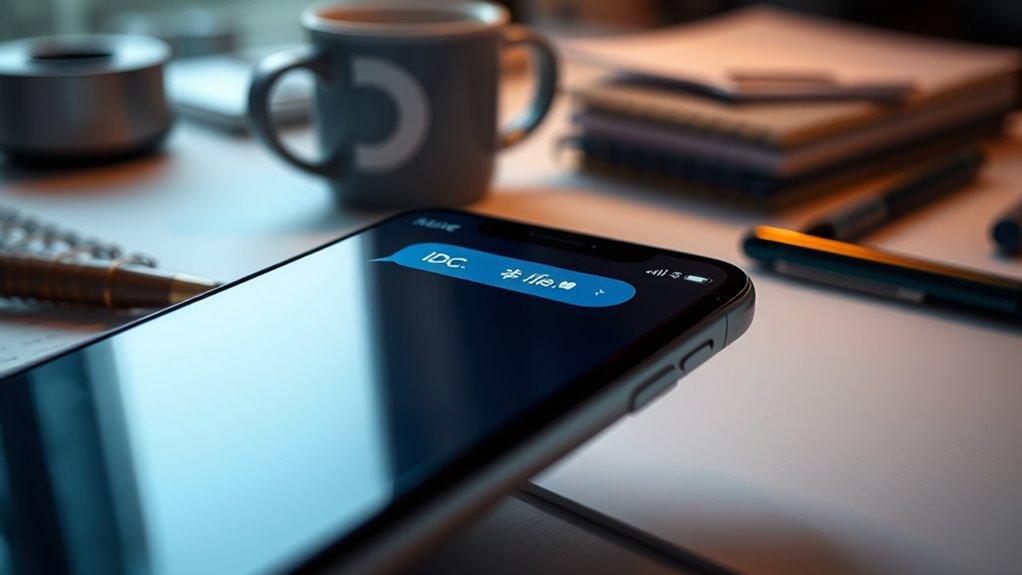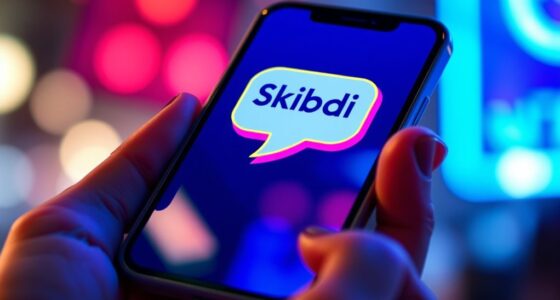IDC stands for “I don’t care,” a common slang used in digital chats to quickly show indifference or disinterest. People often use it to dismiss further discussion or to express they’re unaffected by a topic. It’s common in casual online conversations and can vary depending on the tone and context. If you stay with me, you’ll get a better understanding of how this slang fits into digital communication and what it really means in different situations.
Key Takeaways
- “IDC” stands for “I Don’t Care,” expressing indifference or lack of concern in digital communication.
- It is commonly used in online chats, social media, and texting to de-emphasize feelings or reactions.
- The meaning of IDC can vary based on context, tone, and relationship between conversants.
- Variations like “IDc” or “IDK” are related slang used to streamline digital conversations.
- Recognizing the context helps accurately interpret IDC’s emotional or dismissive intent.
The Origin of IDC in Digital Communication
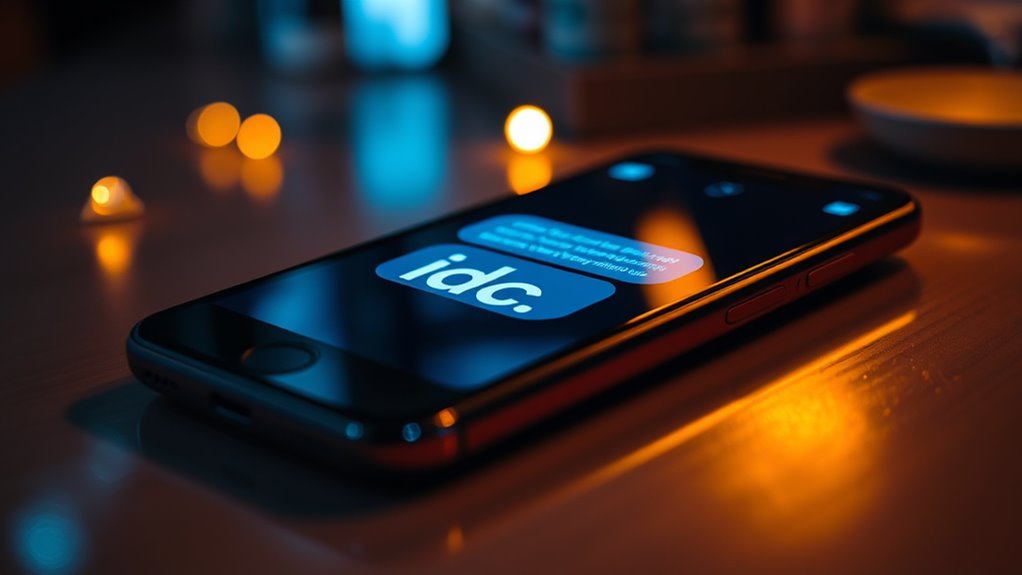
The term “IDC” in digital communication traces back to early internet slang, where abbreviations became a quick way to convey common phrases. This is part of the broader history of internet slang, which emerged as a way to communicate efficiently online. As texting evolved, abbreviations like IDC gained popularity because they saved time and effort while typing. During the evolution of texting abbreviations, users sought shortcuts for frequently used expressions, leading to acronyms and initialisms. IDC specifically originated as a way to express indifference or lack of concern in a concise form. Over time, it became widely recognized in online chats and social media, illustrating how the history of internet slang continuously adapts to the need for faster, more efficient communication.
Common Contexts Where IDC Is Used
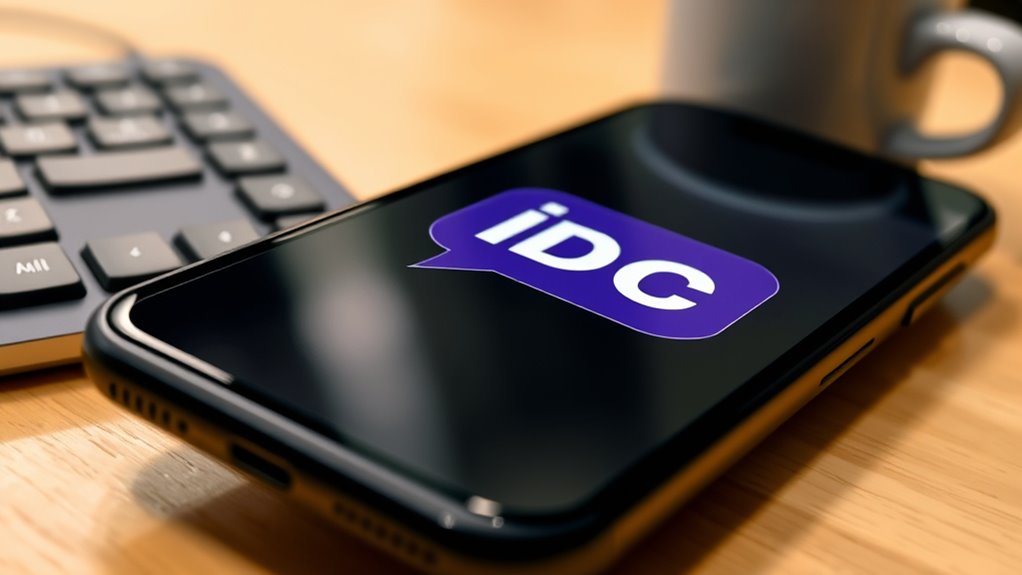
Have you ever seen “IDC” pop up in online chats or social media posts? It’s often used as a quick way to show emotional expression or dismiss feelings. Understanding where IDC appears helps you grasp slang evolution and communication nuances. For example:
IDC shows emotional indifference or dismisses feelings in online chats and social media.
- Expressing indifference — When you want to show you’re unaffected or uninterested without elaborating.
- De-emphasizing emotions — To casually downplay feelings or reactions in conversations.
- Ending a debate — When you wish to dismiss further discussion, signaling “I don’t care.”
These contexts highlight how IDC adapts to modern slang, making digital exchanges more efficient while reflecting shifting emotional expression styles. Recognizing these uses helps you interpret intent behind casual online interactions more accurately. Additionally, understanding paint sprayer technology can improve your knowledge of DIY projects and professional applications.
Variations and Similar Acronyms

Wondering if there are other acronyms similar to IDC that serve the same or related purposes? You’ll find several slang variations and acronym similarities used in casual conversations. For example, “IYKC” (I Know, Right?) shares a similar vibe, expressing agreement or understanding. “IDK” (I Don’t Know) is another common acronym often used alongside IDC to show uncertainty or indifference. Some variations, like “IDC” itself, can be stylized differently, such as “IDK” or “IDc,” to fit personal texting styles. These slang variations help convey tone and emotion quickly. While these acronyms serve different functions, they all share the goal of streamlining communication and expressing feelings efficiently, making your messages more relatable and instantly understandable within digital conversations. Additionally, understanding internet slang helps decode the nuanced ways youth culture communicates online.
Interpreting IDC in Different Conversations
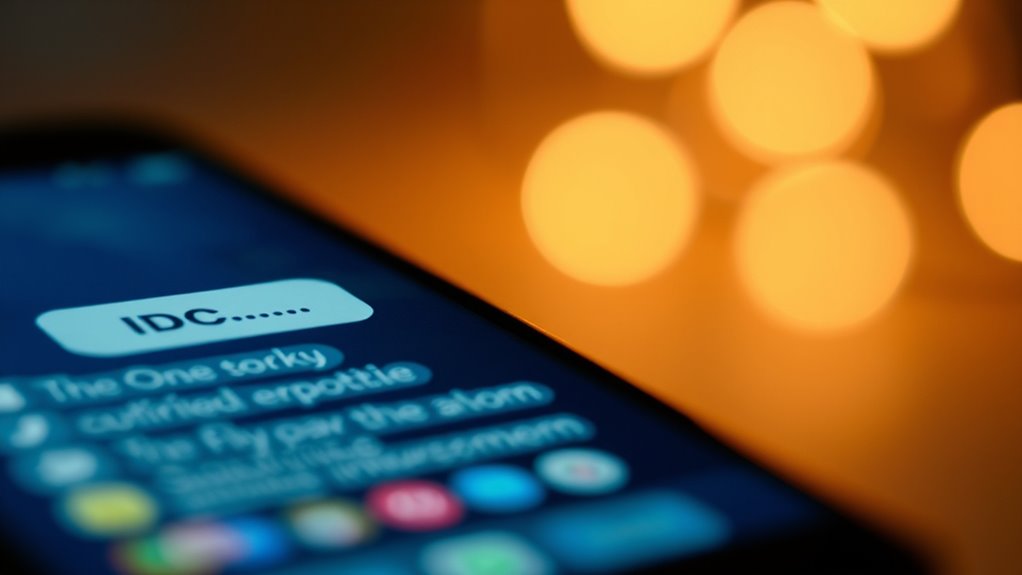
Interpreting IDC depends heavily on the context of the conversation, as its meaning can shift from one situation to another. In online slang evolution, IDC might signal different intentions based on tone, relationship, or platform. Recognizing these nuances helps you stay accurate. To deepen your understanding, consider these points: A privacy policy explains how user data is handled, which can influence how you interpret abbreviations like IDC in different settings.
Cultural and Social Implications of Using IDC

Why do people often choose to use IDC in digital conversations, and what does it reveal about social dynamics? Using IDC, a common teen slang term, reflects evolving digital etiquette and a desire to keep messages clear and casual. It can signal familiarity, friendliness, or a way to soften what might seem abrupt. However, it also highlights how language adapts to online environments, shaping social interactions. Some may see IDC as a way to build rapport, while others might view it as informal or even dismissive. Its use shows that digital communication is a dynamic social space, where slang and abbreviations like IDC influence how we connect, understand, and navigate relationships. Overall, IDC underscores the importance of context in digital etiquette and social signaling.
How to Respond When Someone Uses IDC
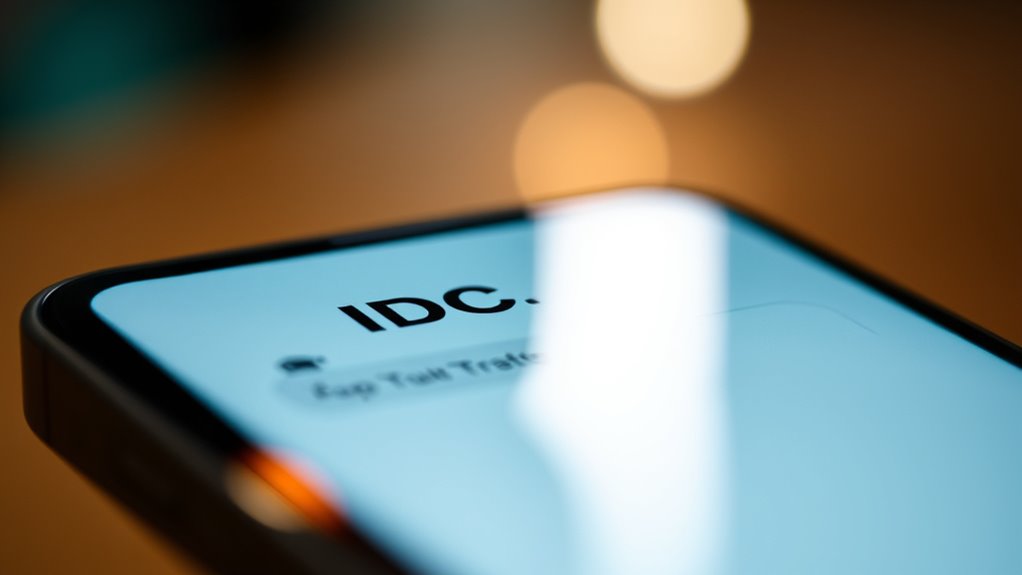
When someone uses IDC in a message, your response can shape the flow of the conversation and reinforce social cues. Your emotional reactions and tone interpretation are key in understanding their intent. To respond effectively:
- Stay neutral or curious to clarify intent, preventing misunderstandings.
- Observe their tone—are they joking or dismissive? This guides your emotional reaction.
- Reflect on social cues and adjust your tone accordingly, showing empathy or assertiveness.
- Recognize that in online communication, abbreviations like IDC are often used to convey informal language and should be interpreted within context.
Tips for Understanding Internet Slang and Abbreviations
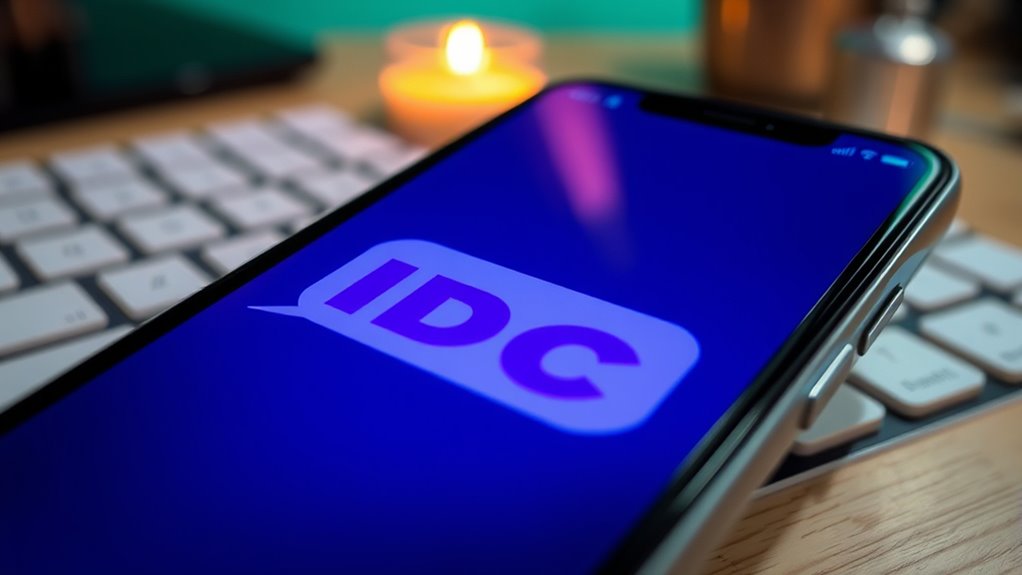
Ever wonder how to decode the endless stream of internet slang and abbreviations you encounter online? To improve your understanding of slang evolution, start by paying attention to context. Notice how words change meaning over time and across different platforms. Using online resources like slang dictionaries or social media glossaries can help clarify unfamiliar terms. Practice decoding abbreviations by asking friends or checking definitions quickly. Keep in mind, relying heavily on abbreviations might impact your communication skills, so aim to balance casual slang with clear, articulate writing. Over time, you’ll recognize patterns and develop intuition for new slang, making interactions smoother. Staying curious and adaptable is key to mastering internet slang and keeping your communication skills sharp. Additionally, understanding concepts like sound healing science can deepen your appreciation for how sound influences mood and cognition, which can also inform your online interactions.
Frequently Asked Questions
Does IDC Stand for Anything Besides “I Don’t Care”?
IDC mainly stands for “I don’t care,” but it can have alternative meanings depending on the context. In some cases, it might mean “Internet Data Center” or “International Data Corporation,” especially in tech or business discussions. Contextual interpretations are key; if someone mentions IDC in a tech chat, they’re probably talking about data centers. Always consider the conversation’s topic to understand its precise meaning beyond the common “I don’t care.”
How Do I Differentiate IDC From Similar Acronyms Like ICU or IDK?
Think of text abbreviations like IDK, IDC, and ICU as different tools in your online slang toolkit. To tell them apart, remember IDC means “I don’t care” and shows indifference, while IDK just means “I don’t know,” and ICU refers to the hospital unit. Pay attention to context and tone—IDC usually signals apathy, whereas ICU relates to healthcare. Recognizing these cues helps you understand the message better.
Is IDC More Common in Specific Age Groups or Online Communities?
You’ll find that IDC is more common among teens and young adults, especially in social media trends and messaging apps. As part of teen slang, it’s often used to show indifference or a lack of concern. You might see it frequently in platforms like TikTok, Instagram, or Snapchat, where quick, casual communication is key. So, if you’re chatting with younger people online, expect IDC to pop up more often.
Can IDC Be Used in Professional or Formal Communication?
You generally shouldn’t use IDC in professional or formal communication, as it may come off as too casual or dismissive. Maintaining an appropriate tone is important to convey respect and professionalism. Instead, express your feelings clearly and politely, like saying you’re indifferent or have no opinion. This way, you guarantee your message remains respectful and suitable for any formal setting.
Are There Regional Differences in How IDC Is Understood or Used?
You’ll find that regional slang and international usage influence how IDC is understood around the world. In some places, it’s casually used to show indifference, while in others, it might confuse people unfamiliar with the slang. Like a global language, IDC adapts to local customs, making it seem like a linguistic chameleon. So, yes, regional differences shape how you should interpret or use IDC, depending on where you are.
Conclusion
Now that you know what IDC means in text, you can spot it effortlessly in conversations. It’s funny how acronyms like IDC pop up when you least expect, shaping how we communicate online. Whether you see it as indifference or just a quick reply, understanding its context helps you stay in the loop. So next time someone drops IDC, you’ll know exactly what they mean—and maybe even catch yourself using it without thinking.
